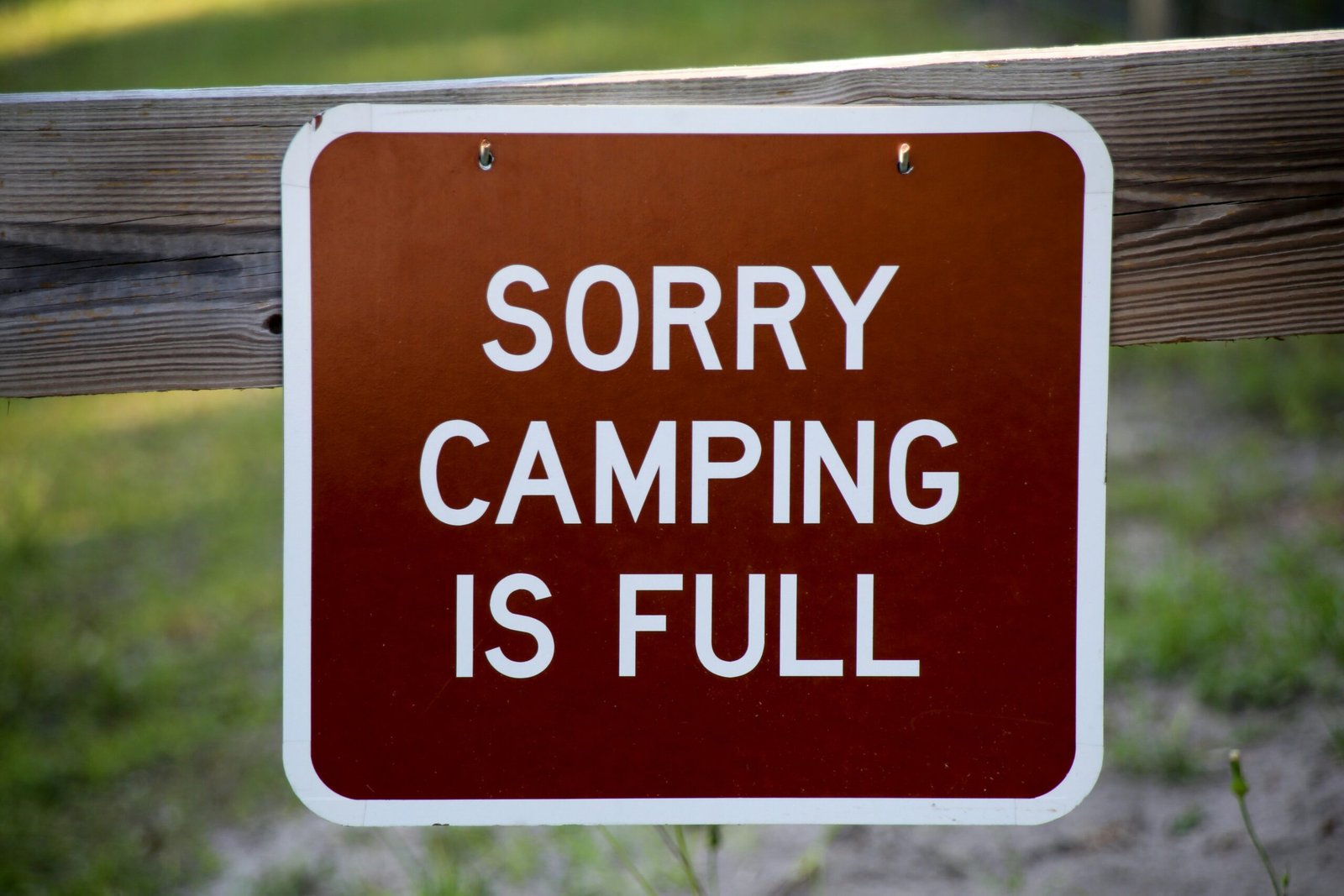

Introduction to Voluntourism
In recent years, voluntourism has seen a significant rise in popularity among travelers seeking more meaningful and impactful experiences. Voluntourism, a portmanteau of “volunteering” and “tourism,” refers to the practice of combining travel with volunteer work, allowing travelers to contribute to the communities they visit while also exploring new cultures and destinations. This form of travel offers an enriching alternative to traditional tourism, providing opportunities to engage in hands-on projects that make a tangible difference in various sectors.
The appeal of voluntourism lies in its ability to foster a deeper connection between the traveler and the local community. By participating in purposeful activities, voluntourists can immerse themselves in the daily lives of local residents, gaining insights into their challenges and triumphs. This mutual exchange benefits both parties: the community receives much-needed support, while the traveler gains invaluable experiences and perspectives that transcend conventional sightseeing.
Voluntourism projects are diverse and cater to a wide range of interests and skills. Environmental conservation initiatives are particularly popular, with many voluntourists participating in activities such as wildlife preservation, reforestation, and marine conservation. These projects aim to protect endangered species and habitats, contributing to global biodiversity efforts. Alternatively, those interested in social development can join community-based projects, which may include building schools, providing healthcare services, or teaching English to children and adults. These efforts help improve the living conditions and educational opportunities in underprivileged areas.
Whether focused on environmental or community development, voluntourism projects offer travelers a unique way to make a positive impact while discovering new places. As the movement continues to grow, it presents an opportunity to redefine the traditional travel experience, advocating for responsible tourism practices that benefit both destinations and their inhabitants. Through voluntourism, travelers not only see the world but also contribute to its betterment, creating lasting memories and meaningful change along the way.
The History and Evolution of Voluntourism
Voluntourism, a term combining ‘volunteer’ and ‘tourism,’ traces its origins back to the early 20th century. Initially, it was characterized by missionaries and charitable organizations who traveled to different parts of the world to provide aid and perform philanthropic work. These early iterations of volunteer travel often focused on religious missions, tending to the sick, and constructing housing or educational structures in underserved communities.
The concept began to evolve significantly during the mid-20th century, particularly after the establishment of organizations like the Peace Corps in 1961. The Peace Corps pioneered a model where individuals, particularly young adults, volunteered their time and skills in developing countries. This model emphasized mutual cultural exchange and learning, setting a precedent for modern-day voluntourism initiatives.
As global travel became more accessible in the late 20th century, voluntourism gained traction among a broader audience. The late 1990s and early 2000s saw a surge in specialized travel agencies offering structured volunteer programs. Travelers’ motivations also began to shift; the desire to blend travel with meaningful impact attracted both gap-year students and professionals seeking sabbaticals.
Key milestones in the evolution of voluntourism include the incorporation of environmental, educational, and medical volunteering opportunities. Organizations like Habitat for Humanity, Doctors Without Borders, and Earthwatch extended the horizons of volunteer travel beyond traditional scopes, broadening its appeal and reach. The digital age further propelled voluntourism by making information about these experiences readily available and facilitating easier connections between volunteers and host communities.
Travelers’ motivations have continued to evolve into the 21st century, with an increasing emphasis on sustainable and responsible travel. Modern voluntourists are often looking for experiences that provide a genuine cultural exchange and long-term community benefits. Concurrently, organizations have adapted by implementing more stringent ethical guidelines to ensure that their programs do more good than harm, prioritizing the needs and agency of host communities.
The evolution of voluntourism reflects a broader societal shift towards interconnectedness and global responsibility. As this sector continues to grow, it is essential for both travelers and facilitating organizations to maintain a focus on ethical practices to ensure that voluntourism remains a force for positive change.
Benefits of Voluntourism for Individuals
Engaging in voluntourism offers much more than just the joy of traveling; it provides individuals with a profound sense of fulfillment from making tangible differences in the lives of others. As volunteers work in diverse settings—ranging from educational programs to environmental conservation projects—they often experience unparalleled personal growth. By stepping out of their comfort zones, voluntourists are exposed to new perspectives and ways of life that are both humbling and enriching.
The opportunity to develop new skills is another significant advantage of voluntourism. Participants often acquire hands-on experience in areas such as teaching, construction, healthcare, and language translation. These skills not only add value to their personal repertoire but also enhance professional prospects. Additionally, problem-solving and adaptability are frequently honed through addressing unique challenges presented by different cultural and socio-economic environments.
Cultural immersion is a core aspect of the volutourism experience. Unlike traditional tourism, voluntourism allows individuals to live and work closely with local communities. This deeper engagement facilitates genuine connections and mutual understanding, fostering cultural sensitivity and appreciation. The nuanced understanding of local customs, languages, and daily routines gained through this immersive experience is invaluable and often remains with volunteers long after they return home.
Real-world testimonials from past voluntourists underscore these benefits. For instance, Jane Doe, who volunteered to teach English in rural Nepal, recounts how the experience not only improved her communication skills but also instilled in her a greater appreciation for educational access. Similarly, John Smith, who participated in a marine conservation project in Belize, highlights how working alongside marine biologists expanded his knowledge of marine ecosystems and ignited a passion for environmental advocacy.
Impacts on Host Communities
Voluntourism, a blend of volunteering and tourism, has significantly impacted host communities worldwide. Understanding these impacts requires a balanced examination of both the positive and potential negative outcomes. Responsible voluntourism practices are key to ensuring sustainable and ethical engagements with these communities.
On the positive side, voluntourism can provide substantial economic benefits to host communities. The influx of volunteers often boosts local businesses, as they spend money on accommodation, food, and other services. This economic stimulation can be crucial for developing regions, fostering growth and prosperity. Additionally, voluntourism facilitates skill transfer; volunteers bring diverse expertise that can enhance local knowledge and capabilities. For instance, educational projects often improve teaching methods and resources, while healthcare initiatives can elevate medical practices and preventive care. Infrastructure development is another notable benefit, as voluntourism projects frequently focus on building schools, clinics, and sanitation facilities, directly improving the quality of life for local residents.
However, voluntourism is not without its drawbacks. One significant concern is the risk of fostering dependency. Continuous external aid can undermine local agency and self-sufficiency, creating reliance on foreign assistance rather than empowering communities to address their challenges independently. Cultural disruption is another issue; well-meaning volunteers might inadvertently impose their own cultural norms, which can erode traditional practices and values. Furthermore, not all volunteer efforts are effective; poorly planned or executed projects can waste resources and deliver subpar outcomes, sometimes causing more harm than good.
To mitigate these negative impacts, responsible voluntourism is essential. This involves thorough research and collaboration with local communities to identify genuine needs and sustainable solutions. Transparent, ethical practices and long-term commitments can ensure that voluntourism contributes positively without compromising the autonomy and cultural integrity of host communities. Ultimately, when done thoughtfully, voluntourism has the potential to make a lasting, positive difference while allowing volunteers to experience the world in a profoundly meaningful way.
Choosing the Right Voluntourism Program
Selecting the right voluntourism program is crucial for meaningful and impactful participation. The first step in this process involves thorough research into potential organizations. Start with an in-depth exploration of the organization’s history, mission, and the types of voluntourism projects they offer. Consider looking for programs that resonate with your personal interests and align with ethical standards in voluntourism. A reputable organization should transparently present its goals and operational methods.
Assessing the legitimacy of a project is another vital consideration. It is essential to verify whether the volunteer efforts will genuinely benefit the host community. Look for evidence of sustainable practices and long-term impact assessments. Organizations should ideally work in collaboration with the local population, addressing their real needs and ensuring that the projects do not inadvertently harm or disrupt the community. Responsible voluntourism projects are those that prioritize the welfare and development of the host area over the desires of the volunteers.
Background checks and program reviews are indispensable tools for evaluating voluntourism programs. Past volunteer testimonials, online reviews, and ratings can provide valuable insights into the organization’s credibility. Engaging with former volunteers through forums or social media can also offer practical advice and firsthand accounts of their experiences. Additionally, a thorough background check on the organization will give an idea of their reliability and commitment to ethical practices.
Finally, it’s important to choose a program that aligns with your skills, passions, and expertise. Volunteering should be aligned with what you are both interested in and capable of effectively contributing to. Programs that match your abilities not only increase your effectiveness but also enhance your personal fulfillment from the experience. This thoughtful alignment ensures that the volunteer work is both meaningful to the community and enriching for the volunteer.
Preparing for a Voluntourism Trip
Embarking on a voluntourism journey intertwines travel and community service, demanding thorough preparation to ensure a fruitful and respectful experience. The preliminary step involves securing essential travel documents. A valid passport with at least six months’ validity is mandatory, alongside relevant visas specific to the destination country. Each country has unique entry requirements, so early research and prompt application submission are advisable.
Health considerations are paramount. It’s imperative to consult with healthcare professionals regarding required vaccinations and travel medicine. Common vaccinations for voluntourism trips include Hepatitis A and B, Typhoid, measles, rubella, mumps (MMR), and Japanese Encephalitis, contingent on the destination. Some countries may also necessitate prophylactic medications, such as anti-malarial drugs. Carrying a personalized medical kit that includes basic first aid supplies, prescription medications, and travel insurance details ensures preparedness for minor injuries or illnesses.
Equipping oneself properly is another facet of preparation. Packing smartly, bearing in mind the destination’s climate and the nature of volunteer work, is advisable. Essentials include durable and comfortable clothing, appropriate footwear, personal hygiene products, and necessary electronics with compatible adapters or converters for international sockets. Additionally, bringing culturally appropriate attire reflects respect towards the local customs.
Cultural Sensitivity and Language Skills
Cultural sensitivity training cannot be overstated. Understanding local norms, traditions, and etiquette averts inadvertent cultural faux pas. Engaging in cultural sensitivity workshops or reading about the societal norms of the destination enriches this understanding. Basic language skills serve as bridges to more immersive experiences. Learning simple greetings and phrases in the local language demonstrates respect and fosters stronger community bonds.
Setting realistic expectations is crucial. Voluntourism projects are often community-driven with evolving needs, meaning flexibility and adaptability are key. Be prepared for a range of tasks, which may differ from initial project descriptions. Recognizing that change is incremental and appreciating the small contributions made towards the bigger goal enriches the voluntourism experience. Ultimately, meticulous preparation paves the way for a mutually rewarding adventure, harmonizing the joy of travel with the satisfaction of impactful community service.
During Your Voluntourism Experience
Embracing a voluntourism experience involves more than just lending a helping hand; it necessitates immersion, flexibility, and cultural sensitivity. When working with local communities, understanding and respecting local traditions, customs, and societal norms is paramount. This cultural appreciation not only enriches your experience but also fosters genuine relationships with the community members. Engage actively and listen intently to gain insights and build trust.
Maximizing your impact on the ground requires an open mind and a willingness to adapt. Situations in the field can differ significantly from what is anticipated, and unexpected challenges are bound to arise. Maintaining a positive attitude and being solution-oriented will enhance your ability to handle such challenges effectively. Establishing clear communication with local coordinators and community leaders can also be instrumental in navigating unforeseen circumstances.
Building strong relationships during your voluntourism endeavor starts with mutual respect and empathy. Take the time to understand the needs and priorities of the people you are assisting. Avoid imposing your own worldview, and instead, collaborate to identify sustainable solutions that are beneficial for all parties involved. This collaborative approach will lead to more meaningful and impactful outcomes.
Handling cultural nuances is critical, as what may be considered polite or acceptable in one culture can be perceived differently in another. Observing local customs, asking questions when unsure, and mirroring respectful behaviors are essential practices. Additionally, learning a few basic phrases in the local language can go a long way in showing respect and building rapport.
Personal safety is of utmost importance during your voluntourism experience. Prioritize researching the destination’s potential risks and current advisories. Adhere to recommended precautions shared by local authorities or your hosting organization. Keep a low profile, avoid risky areas, and remain vigilant of your surroundings. By staying informed and cautious, you can focus fully on making a positive difference while ensuring your well-being.
Reflecting on Your Impact and Continuing Involvement
Post-trip reflection is a vital step in ensuring that your voluntourism efforts have a lasting impact. Evaluating the effectiveness of your contributions can be done through several methods. Start by asking yourself key questions: Did your work meet the intended goals? How has the community benefited from your presence? Gathering feedback from local partners and beneficiaries can also provide valuable insights. Reflecting on both the positive outcomes and any challenges faced enables you to learn and improve future endeavors.
Staying connected with the cause is another important aspect. Maintaining relationships with the host community and the organizations you worked with can foster long-term support and solidarity. Regular updates through newsletters, social media, or direct communication help keep you informed about ongoing projects and new initiatives. This continued engagement ensures that your initial efforts evolve into sustainable contributions, rather than fleeting acts of goodwill.
Advocating for responsible voluntourism goes hand in hand with staying connected. Share your experiences and the importance of ethical practices with friends, family, and your broader network. Emphasize the necessity of choosing programs that prioritize the needs and well-being of the local community. By enlightening others about responsible voluntourism, you contribute to a larger movement that promotes genuine benefits and minimizes negative impacts.
There are multiple avenues for continued support and involvement beyond the initial trip. Fundraising for the cause, whether through personal initiatives or organized events, can provide much-needed financial assistance. Additionally, spreading awareness about the issues faced by the community and the impact of voluntourism can garner more support and resources. Volunteer recruitment is another critical area where you can contribute. Encouraging others to participate in responsible voluntourism not only amplifies the impact but also fosters a culture of global citizenship.
By reflecting on your experiences, maintaining connections, and advocating for responsible practices, you can ensure that your voluntourism efforts make a lasting, positive difference in the world.



